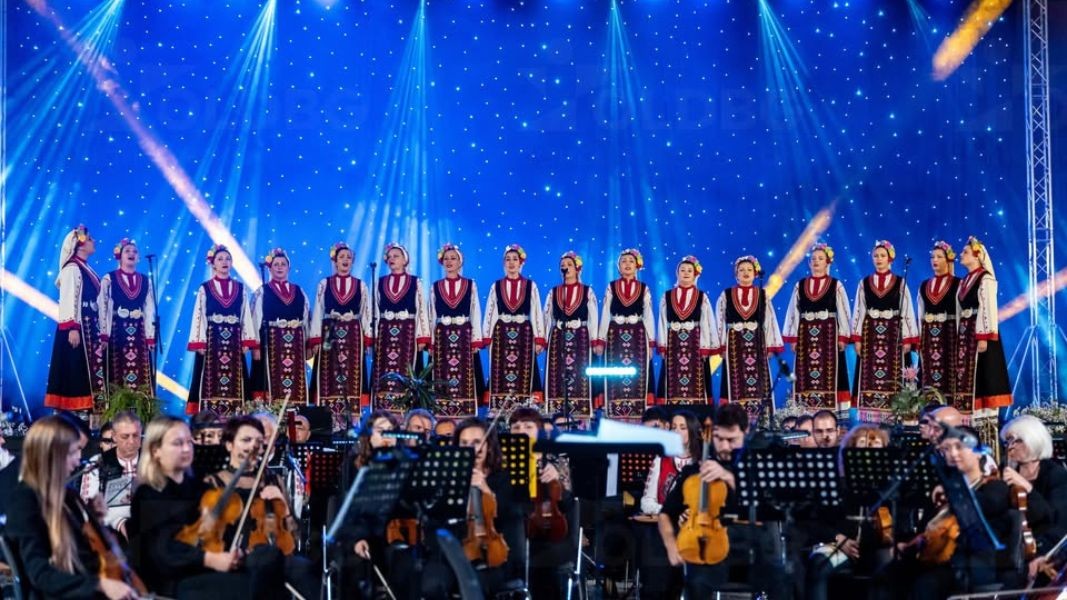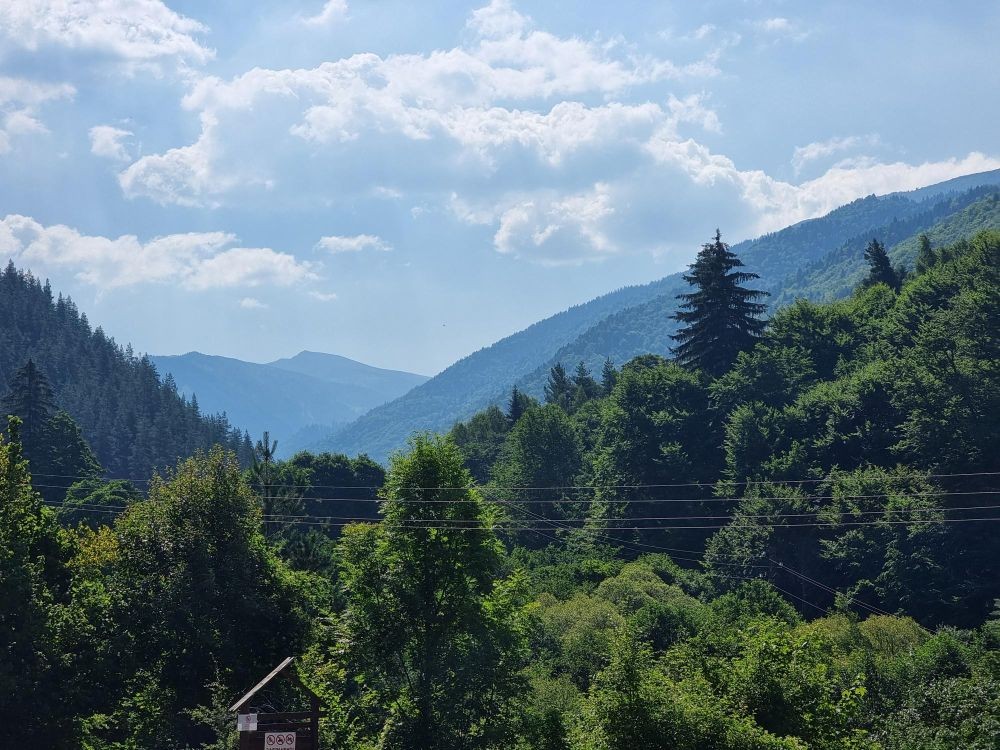Stefka Sabotinova (1930 – 2010) is a musician that earned world fame for Bulgaria’s folklore traditions. Born in the heart of Thrace, in a village called Rozov Kladenets (meaning pink well) which no longer exists, she inherited her talent from her ancestors – settlers from Western Thrace. The songs from these parts which she was taught by her sweet-voiced grandmother, were to become an important element of the singer’s repertoire. Sabotinova’s talent was discovered by folk singer and folklorist Zhecho Dolchinkov, who recorded and categorized over 3,500 songs from the region of Kotel and Dobrudzha. In an interview with Sega newspaper in 2002, Stefka Sabotinova says that Dolchinkov noticed her while she was still at school in Plovdiv. “Folklorists from the national radio would scout the schools. That is where Zhecho Dolchinkov discovered me. I recorded three songs at the radio with Tsvyatko Blagoev’s group.”
These first recordings were made in 1947 and in 1948, and in 1951 Stefka moved to Sofia. She entered a contest for the state folk song and dance ensemble (now the Philip Koutev folklore ensemble) and was one of the few applicants to have been approved. Eyewitnesses say that Philip Koutev himself was stunned by her incredible voice and the impressive range of songs she knew, and also by her beauty. She worked with the Philip Koutev ensemble for 14 years. He was the first musician to have spotted her “jewel in the crown” – “Prituri se planinata” with the warm and exciting voice of the singer and her masterful performance. 
The first arrangement of the song was done by Philip Koutev himself – with the orchestra of the ensemble later named after him. This version, recorded for the Bulgarian National Radio, is one of the two solo songs by Stefka Sabotinova included in the first album of the Mystery of Bulgarian Voices series by Swiss producer Marcel Cellier, released in 1975.
The original version of the song:
“Prituri se planinata” performed by Stefka Sabotinova and the orchestra of the Philip Koutev ensemble, included in the first Mystery of Bulgarian Voices record, was a cultural symbol of Bulgaria throughout the world in the space of around two decades. When asked some time later about the crowning moment of her career, Stefka Sabotinova had no hesitation it was connected with her emblematic song: “The fact is I created a world hit, something many people were not happy about – including some of our foremost musicians. But that’s not my fault, it’s their fault. The song was there, in the sound library. Why didn’t they make a world hit of it? It was only Marcel Cellier who decided to do it in 1994 and gave it to Jacky Anona to arrange it. There was so much scandal connected with this song, it is not pleasant to remember…” In the same interview for Sega newspaper, Sabotinova remembers that her song was “sold for a soundtrack” and mentions the Canadian-French film from 1989 Jesus of Montreal, directed by Denys Arcand, which won a host of awards and even had an Academy Award nomination.
In the early 1990s, renowned composer and conductor Stefan Dragostinov created a new version of “Prituri se planinata” for the choir of the Philip Koutev ensemble. It was recorded with soloist Lyudmila Radkova. Yet, the song only became truly popular in 1994 in a modern arrangement, with the voice of Stefka Sabotinova.
But what made it so exceptional to Bulgarians was not so much the mesmerizing melody or Sabotinova’s superb voice, but the tragic, laconic text – a masterpiece that strikes listeners with the very first word – “prituri se” – an archaic dialect word that has lived on in the Bulgarian language with a different meaning – “adding”. But in the song the meaning is very different – in dictionaries it can be found as meaning “transferring from one place to another, raising, originating in a place where none existed” but also “collapsing suddenly, toppling, foundering”. The song keeps all of these different meanings to activate them in gradation: the whole mountain rises to “collapse” over the two shepherds – a hyperbole that makes the mountain even bigger and more crushing. The fact that everything is up to the forces of nature engenders a sense of doom – the mountain is all-powerful, the shepherds are helpless, humans are but a plaything of the elements-turned-god, giving to each their due. After listening to the pleas and entreatments of the shepherds to show them mercy – one wants to go back to his young love, the other – to his old mother – the mountain metes out justice. The arguments are vivid metaphors which sound more like proverbs describing absolute truths. The song ends abruptly and no one is spared – we realize that because the verb “wait”, used by the shepherds, has been replaced with “mourn” – you can wait for a living person, but a dead person is mourned. And the mountain says: the girl you love mourns until midday, a mother mourns for life.
Stefka Sabotinova’s contribution to Bulgarian culture goes beyond the masterpiece “Prituri se planinata” – she has an impressive solo repertoire recorded at the Bulgarian National Radio.
The modern version of “Prituri se planinata”:
Translated and posted by Milena Daynova
Photos: archive, Philip Koutev ensemble, BTA
One of the most significant events on Bulgaria’s cultural calendar - the Festival of Opera and Ballet Art in Stara Zagora - traditionally will open with a premiere by the host company, the Stara Zagora State Opera . On November 21 and 22,..
“Such Is Life” — this is the motto of the concert on November 19, where composer Stefan Dimitrov will bring together on one stage legendary performers such as Bogdana Karadocheva, Mihail Belchev, the Argirov Brothers, Mimi Nikolova, and Doni, alongside..
Lili Ivanova will sing for the second time in the Olympia Hall. The concert is scheduled for May 24, 2026 and is under the auspices of President Rumen Radev, the team of the pop star informs. Lili Ivanova sends special thanks to..
“Such Is Life” — this is the motto of the concert on November 19, where composer Stefan Dimitrov will bring together on one stage legendary performers..
One of the most significant events on Bulgaria’s cultural calendar - the Festival of Opera and Ballet Art in Stara Zagora - traditionally will open with a..

+359 2 9336 661
